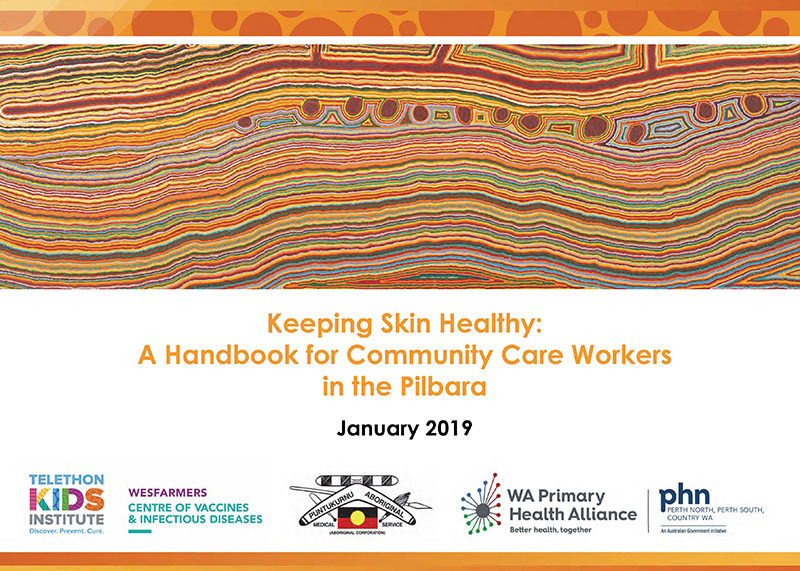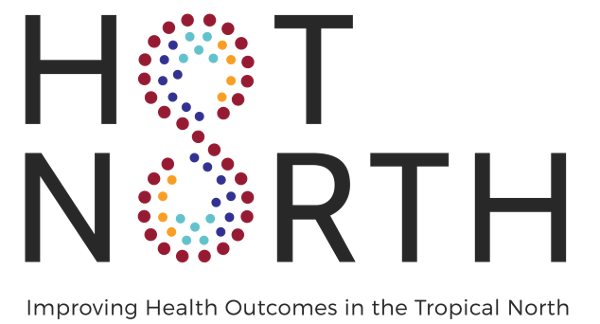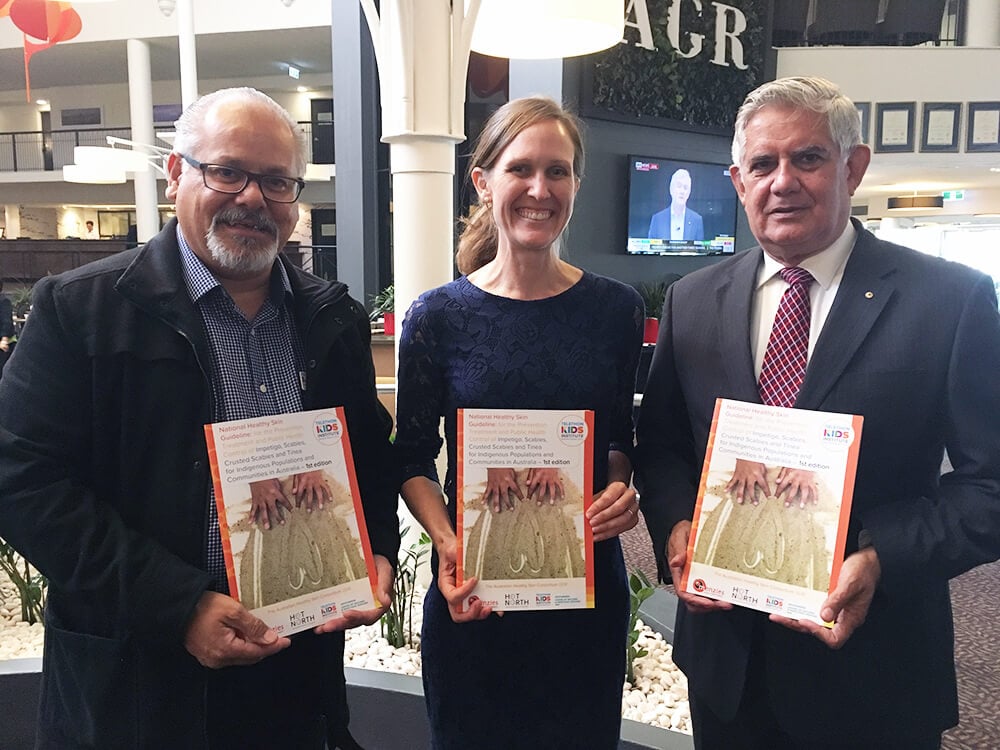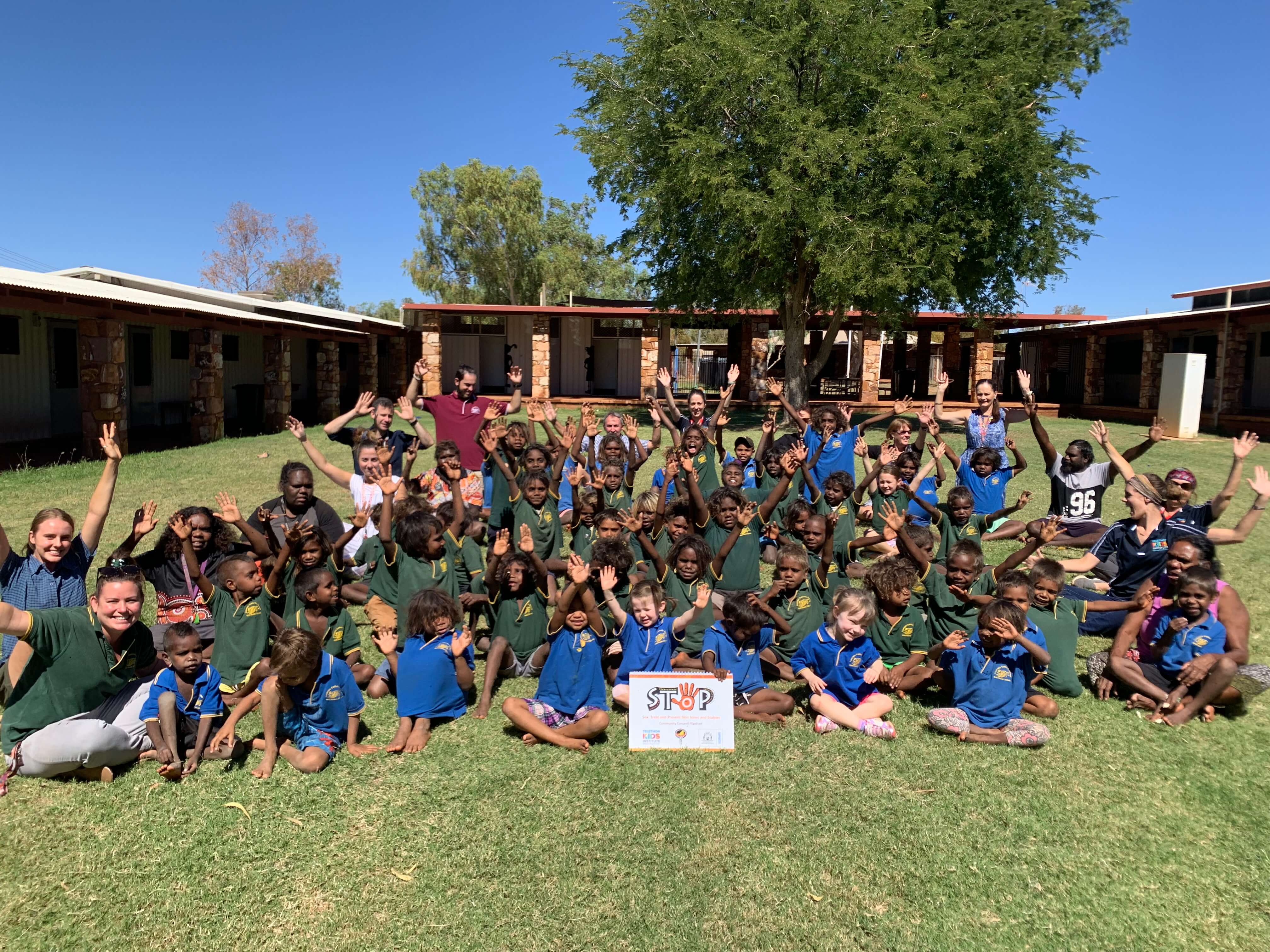Search
Research
Swimming pools in remote Aboriginal communitiesProviding remote communities with access to chlorinated swimming pools has been considered as a possible strategy for reducing ear and skin infection rates...

News & Events
Beating the bugs: a new resource helping to keep skin healthyA year after launching the first National Healthy Skin Guideline to address record rates of skin infections in Australia’s Indigenous communities, The Kids Research Institute Australia has released a new resource as part of the guideline.

News & Events
Port Hedland welcomes health experts from around AustraliaPort Hedland is hosting some of Australia’s most respected health researchers this week as they join forces with local health professionals to improve the health of people living in the tropical north of the country.
Research
An update on the burden of group A streptococcal diseases in Australia and vaccine developmentAsha Jeffrey Bowen Cannon BA MBBS DCH FRACP PhD GAICD FAHMS OAM BSc(Hons) BBus PhD Head, Healthy Skin and ARF Prevention Health Economist
Research
Scabies and impetigo in Timor-Leste: A school screening study in two districtsScabies and impetigo are common in Timor-Leste, with very high prevalence of scabies in the rural district of Ermera

News & Events
National guideline to tackle record rates of skin infectionResearchers have developed the first National Healthy Skin Guideline to address record rates of skin infections in Australia’s Indigenous communities.

News & Events
Major grant empowers community voices to drive reduction in skin infectionsAboriginal community members throughout the Kimberley will take a lead role in driving healthy skin messages within their own communities thanks to a major funding boost to The Kids Research Institute Australia’s SToP Trial.
Research
Hospital admissions for skin infections among Western Australian children and adolescents from 1996 to 2012Skin infections are a significant cause of severe disease, requiring hospitalization in Western Australian children, particularly with Aboriginal children
Research
Clinical and Molecular Epidemiology of an Emerging Panton-Valentine Leukocidin-Positive ST5 Methicillin-Resistant Staphylococcus aureus Clone in Northern AustraliaRecently, we identified a Staphylococcus aureus sequence type 5 (ST5) clone in northern Australia with discrepant trimethoprim-sulfamethoxazole (SXT) susceptibility results. We aimed to identify isolates of this clone using Vitek 2 SXT resistance as a proxy and to compare its epidemiology with those of other circulating S. aureus strains. We collated Vitek 2 susceptibility data for S. aureus isolates collected through our laboratory and conducted a prospective, case-control study comparing clinical, microbiological, epidemiological, and genomic data for subsets of isolates reported as SXT resistant (cases) and SXT susceptible (controls) by Vitek 2.
Research
Antimicrobial stewardship in remote primary healthcare across northern AustraliaThe high burden of infectious disease and associated antimicrobial use likely contribute to the emergence of antimicrobial resistance in remote Australian Aboriginal communities. We aimed to develop and apply context-specific tools to audit antimicrobial use in the remote primary healthcare setting.
